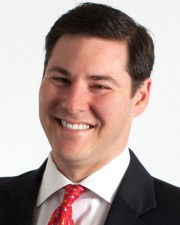

After more than two months of implementation issues, outcry, and adjustments, Congress passed the Paycheck Protection Program Flexibility Act of 2020 (Act) on June 3rd, which was signed into law on June 4th. And on June 11th, the Small Business Administration (SBA) published additional guidance incorporating provisions of the Act into its interim final rules.
The Act addressed a number of key shortcomings that the hospitality industry found when it tried to take advantage of the Paycheck Protection Program (PPP) as originally enacted in late March. Chief among them was that the PPP required that loan proceeds be spent within 8 weeks of disbursement in order to be eligible for forgiveness - precisely the timeframe that state economies were put into “deep freeze.” Additionally, loan proceeds could only be used for a narrow band of permitted expenses and in prescribed ratios that often didn’t align with the needs of the hospitality industry. What follows is a discussion of how the Act provides key flexibility for borrowers that wasn’t available originally under the CARES Act. Time is of the essence: SBA loan numbers for PPP loans must be obtained by June 30th.
Summary of Key Provisions
Loan Maturity Date: The Act extends the term of the PPP loans (i.e. any portion of a PPP loan that is not forgiven) from 2 years to 5 years for loans made after June 5th, 2020. However, the Act will not prohibit lenders and borrowers from mutually agreeing to modify the maturity terms of a covered loan, so existing borrowers are free to negotiate longer loan terms as well. The date that a PPP loan is “made” is the date that the SBA assigns a loan number to the PPP, not necessarily the date of disbursal of funds.
Deadline to Use the Loan Proceeds: The Act extends the “covered period” with respect to loan forgiveness from the original 8 week period after the loan disbursement to the earlier of 24 weeks after disbursement or December 31st, 2020. This means that businesses that were unable to open and spend the loan proceeds within the original timeframe now have up to three times as long to do so. Current borrowers who received loans prior to the enactment of the Act may nevertheless elect the shorter 8 week period.
Forgivable Uses of the Loan Proceeds: The Act raises the cap on the amount of forgivable loan proceeds borrowers may use on non-payroll expenses from 25% to 40%. The Act does not affect existing PPP rules restricting borrowers’ use of proceeds to eligible expenses: Payroll and benefits; interest (but not principal) on mortgages or other existing debt; rent; and utilities. While the Act, as drafted, can be interpreted to treat spending 60% of the loan proceeds on payroll expenses as a threshold requirement to applying for any forgiveness, the SBA’s June 11th rules confirm that 60% refers to proportion, not threshold. Therefore, a borrower who gets a loan of $1 million but only spends $500,000 on payroll can still apply for loan forgiveness, but the maximum forgivable amount will be reduced to $833,333.33 (because the $500,000 spent on payroll must reflect 60% of the maximum forgivable amount).
Safe Harbor for Rehiring Workers: Loan forgiveness under the PPP remains subject to reduction in proportion to any reduction in a borrower’s full-time equivalent employees (FTEs) against prior staffing level benchmarks. The Act extends the PPP’s existing safe harbor deadline to December 31st, 2020: Borrowers who lost workers can avoid reduction of loan forgiveness due to reduced FTE count as long as they restore their FTEs by the deadline.
New Exemptions from Rehiring Workers: The Act also adds two exemptions to the PPP’s loan forgiveness reduction penalties. Firstly, the forgiveness amount will not be reduced due to a reduced FTE count if the borrower can document that they attempted, but were unable, to rehire individuals who had been employees on February 15th, 2020 (this codifies a previous SBA FAQ answer) and have been unable to hire “similarly qualified employees” before December 31st, 2020. Secondly, the forgiveness will not be reduced due to a reduced FTE count if the borrower can document, in good faith, an inability to return to the “same level of business activity” as prior to February 15th, 2020 due to compliance with legal requirements for sanitation, social distancing, and worker or customer safety.
We note that this second exemption as drafted applies only to businesses whose activity is stunted due to legal compliance with safety protocols. It is not a blanket exemption for all businesses. For example, a restaurant forced to cut its dining room capacity by 50% to space tables apart might get the exemption, but its linen supplier wouldn’t, even if the supplier’s orders also dropped by 50%, since the linen supplier’s business isn’t affected by its own legal compliance, only that of the restaurant. Of course, the outcome is different if the linen supplier has outsized compliance issues of its own that cause its business to fall.
Loan Deferral Period: The Act extends the loan deferral period from an original range of 6 to 12 months, to (a) the date the amount of loan forgiveness is remitted to the lender (or the borrower’s forgiveness application is rejected) or (b) 10 months after the forgiveness covered period, if a borrower does not apply for forgiveness during that 10 month period.
Payroll Tax Deferral: The Act lifts the ban on borrowers whose loans were partially or completely forgiven from deferring payment of payroll taxes. The payroll tax deferral is now open to all PPP borrowers.
Summary: The Act provides much-needed flexibility to the hospitality industry to address the shortcomings of the initial PPP. As with the initial rollout of the PPP, it will be up to the Department of the Treasury and the SBA to provide additional regulations, and we expect additional guidance to be forthcoming as the first wave of forgiveness applications is processed.
Sherin and Lodgen’s Hospitality Practice Group continues to follow the PPP closely.
Joshua Bowman is a lawyer from the Boston law firm of Sherin and Lodgen LLP. Bowman is the chair of the firm’s hospitality practice group and is a well-known hospitality attorney.
Joseph Wang is a partner at Sherin and Lodgen LLP in the Real Estate Department and is a member of the hospitality practice group.








